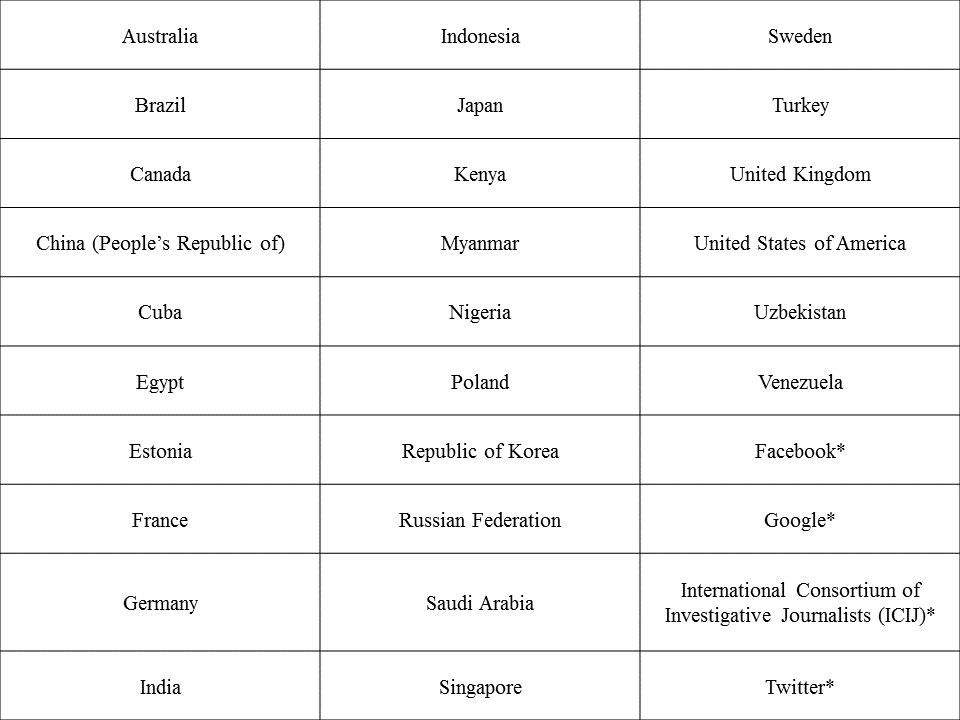Sustainability of Media, Journalism and Information
| Director | Yuhong Chen (陳宇鴻)(Keio University, 3rd Grade) |
|---|---|
| Chair & Vice-Director | Shunta Takino(University of Oxford) |
| Agenda | Sustainability of Media, Journalism and Information |
| Committee | United Nations Educational, Scientific and Cultural Organization |
Words from Director
Since the invention of the World Wide Web in 1992, the speed at which information can be circulated and shared across the world has increased rapidly. Until the 1990s, the dissemination of information was almost exclusively controlled and managed by traditional media corporations through newspapers, television and radio. These traditional media corporations would typically engage in “quality control”, to make sure that the news they were reporting was accurate before circulating it to the public and global audience.
However, today, any individual with access to the internet can blog, or use social media platforms such as Twitter and Facebook to circulate whatever they wish to a global audience. Because there is no institution performing “quality control”, there is no guarantee that the information is accurate. In many cases, information that has gone viral on social networks have proven to be false, or based on unfounded beliefs and therefore have been referred to as “fake news”.
In such a media environment, it has become more important than ever that people approach news and information with a critical eye rather than simply assuming what they read to be true. Yet worryingly, this has not been occurring and instead, we are increasingly entering a “post-truth” world where “objective facts are less influential in shaping public opinion than appeals to emotion and personal belief." This has meant that on countless occasions, questionable and unfounded claims have been put on hoax websites, and then shared on Twitter and Facebook in one morning, only to be spread across the world through social media by the following day, and on some occasions, even being picked up by supposedly trustable news sources soon after. Sometimes the spread of such stories can be comical and have little political effect, yet in other cases the consequences can be enormous.
Concept of Committee
“Make progress”
★Related to day-to-day life
★Learning-by-doing
★Delegate-friendly MUN experience
In this conference we hope all delegates can set their own goals and achieve the goals. Dais will help you achieve your goals by the mentor system. In this system we will help you make your country-strategy and teaching research method.
Agenda
The topic for the committee will require participants to think about the changing media environment of the 21st century, where transnational corporations such as Google, Facebook and Twitter have as much, if not more influence over the flow of information that mainstream media companies such as the BBC. Within this media landscape, new problems have arisen, whether it be fake news, echo chambers and search engine algorithms, or the use of firewalls and leakage of secret government information by WikiLeaks. The topic for discussion is unique, not only because it has not been raised within meetings of the United Nations General Assembly despite its obvious importance, but also as because it affects our day-to-day life as young people who rely on the web and social media for information and news.
Discussion Topics
In this conference, there will be two key questions which will be up for discussion at the meeting, which are:
1. How can the international community come together to deal with new challenges that have arisen in recent decades within the media landscape?
This subtopic will take up a large proportion of the committee sessions, and will be focused on both a) outlining or defining the new media challenges and b) suggesting ways to overcome these challenges. The hope is that the international community will work together to deal with common challenges.
2. How much should governments be able to restrict the flow of information?
This subtopic will be more contested and controversial, for governments have contrasting stances on the extent to which the state should be able to influence or restrict the flow of information, yet at the same time, many countries believe in the importance of free media as a fundamental component of democracy
Ideal Participants
We welcome all people who hope to develop themselves in team work and MUN experience. So it is no problem, even if you don’t have any MUN experience. We are ready for creating a Delegates-Friendly Conference here. In this conference, you will get the opportunity to discuss the problem of current information-society deeply and critically.
Country List
Pair Delegates

*Observer
Tips for Deciding Country
The pairings of delegates will be decided by the dais members, and we will consider who may work with who best, and what kind of combination might be most interesting, enjoyable and valuable for the participants. If however, there is someone who you desperately would like to be paired with, please let us know and we will take into consideration your request.
Since this MUN is about issues related to media that have not been addressed in the UN, we have also included several non-states such as Google, Facebook and Twitter. We encourage students wishing to gain a unique and fresh experience of MUN to consider stating their preference to be one of the above non-member states.
Dais
Director &Secretary: Yuhong Chen / Keio University
Chair &Vice-Director: Shunta Takino / Oxford University
Journalist: Hiroshi Sumino/ Sophia University
Journalist: Tomoko Yamauchi/ Sophia University
Journalist: Yingying Lin/ Keio University
Journalist: Saki Ishii/ Hosei University